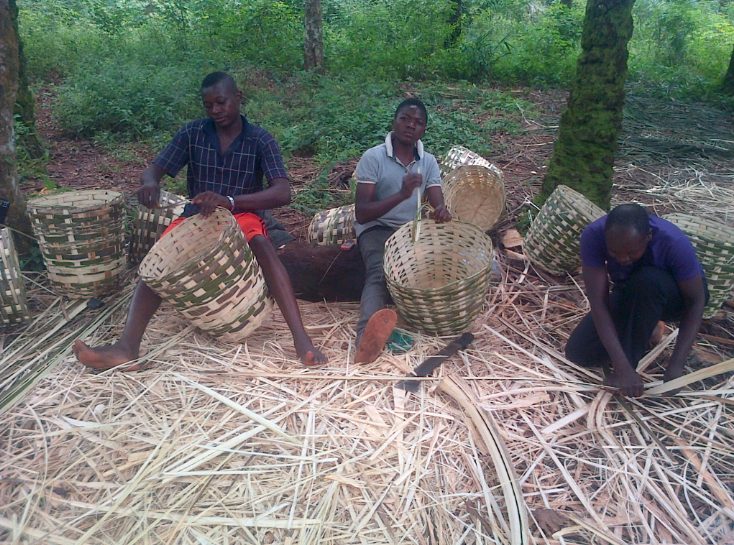
Basket weaving in Enugu: A tale of competition and thriving business
Obollo-Afor, the headquarters of Udenu Local Government Area in Enugu State, is a place known for its agriculture products like banana, avocado pears, cashew nuts and honey. However, it is also a hub for basket making. These baskets are used to package various vegetable produce and are in high demand across Nigeria.
Surprisingly, the intricate art of basket weaving is not just limited to adults but also involves children from primary and secondary schools. These young weavers, driven by the need for pocket money, have found themselves in a thriving business.
Evidently, the demand for their services has become so significant that it has provided more than just supplementary income. For many children, the earnings have led to financial independence, even pulling them away from their parental control.
The process of making these baskets is a commendable skill that requires intricate knowledge of gathering raw materials and weaving techniques. The students engage in weaving during both long vacations and school periods, meticulously managing their academic and weaving responsibilities.
The vibrant weaving community in Obollo-Afor has various rendezvous where individuals come together to compete and showcase their weaving prowess. Each location is named after the village where it is situated, adding a sense of pride and identity to the activity.
The raw materials for making baskets are sourced from palm trees. The process involves carefully climbing the palm trees to prune and gather palm fronds, a skill that demands physical agility and knowledge of the craft.
The earnings from basket weaving vary depending on the season, with higher prices during periods of scarcity. The young weavers have formed a system where buyers directly visit their production points to purchase the finished baskets.
These young weavers have found creativity and financial empowerment through this art, embracing it as a means to support their education and personal needs. However, amidst these successes, concerns have been raised about the negative impact of the money earned, leading to parental challenges and academic distractions.
Elders in the community have also found economic sustenance in this age-old craft, transitioning from producing baskets to becoming leaders in the transportation of the products to the northern part of the country.
Despite the thriving trade, challenges such as deforestation have emerged as a cause for worry. The indiscriminate cutting down of palm trees for raw materials could have adverse effects on the environment and the well-being of the community. As a result, there is a growing need for government intervention to educate and regulate the practice.
In conclusion, basket weaving serves as a pivotal economic activity in Obollo-Afor, catering to the financial needs of both the young and old. While it provides vital economic support, ensuring its sustainability calls for a balanced approach to environmental preservation and responsible business practices.
